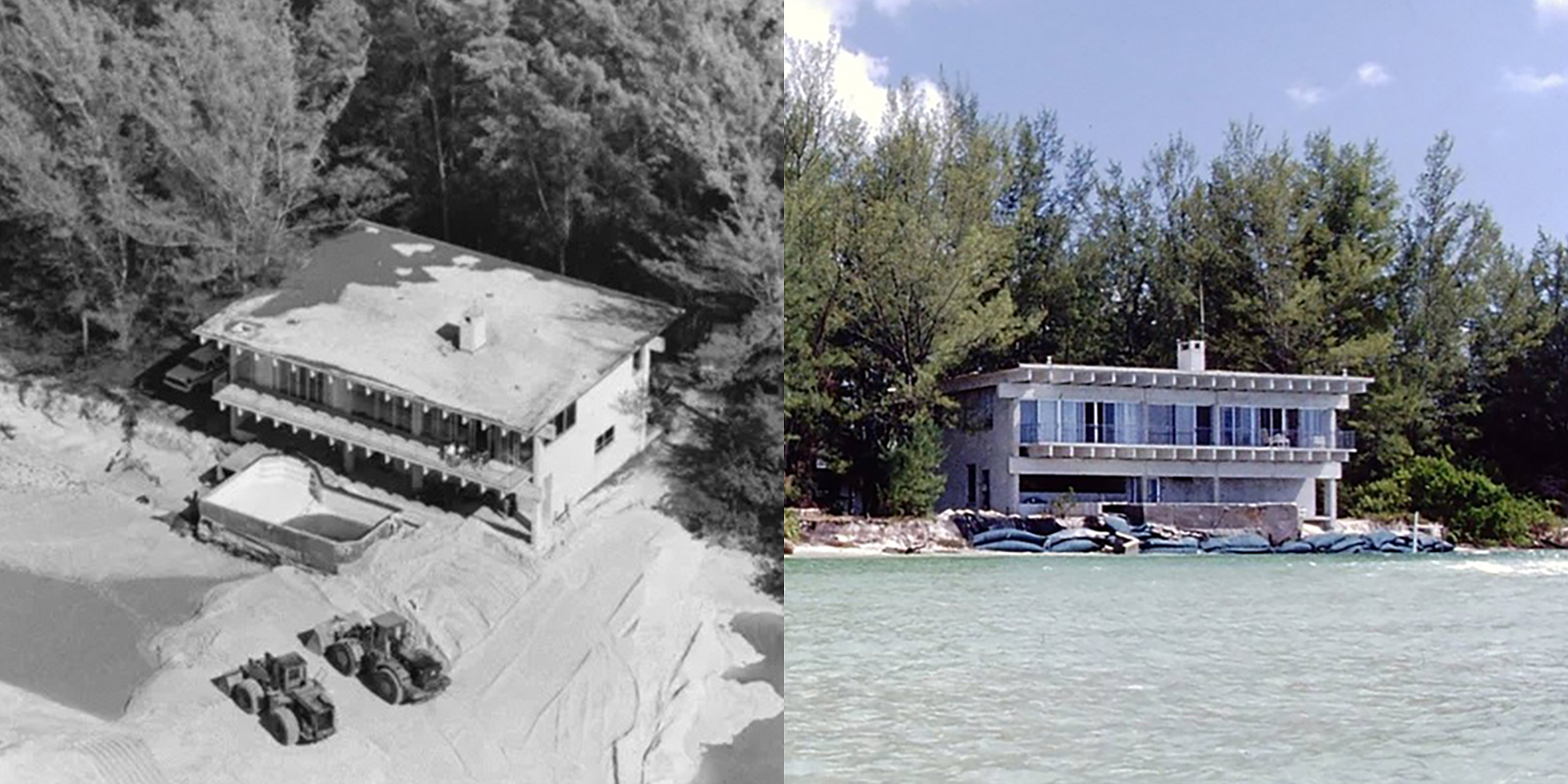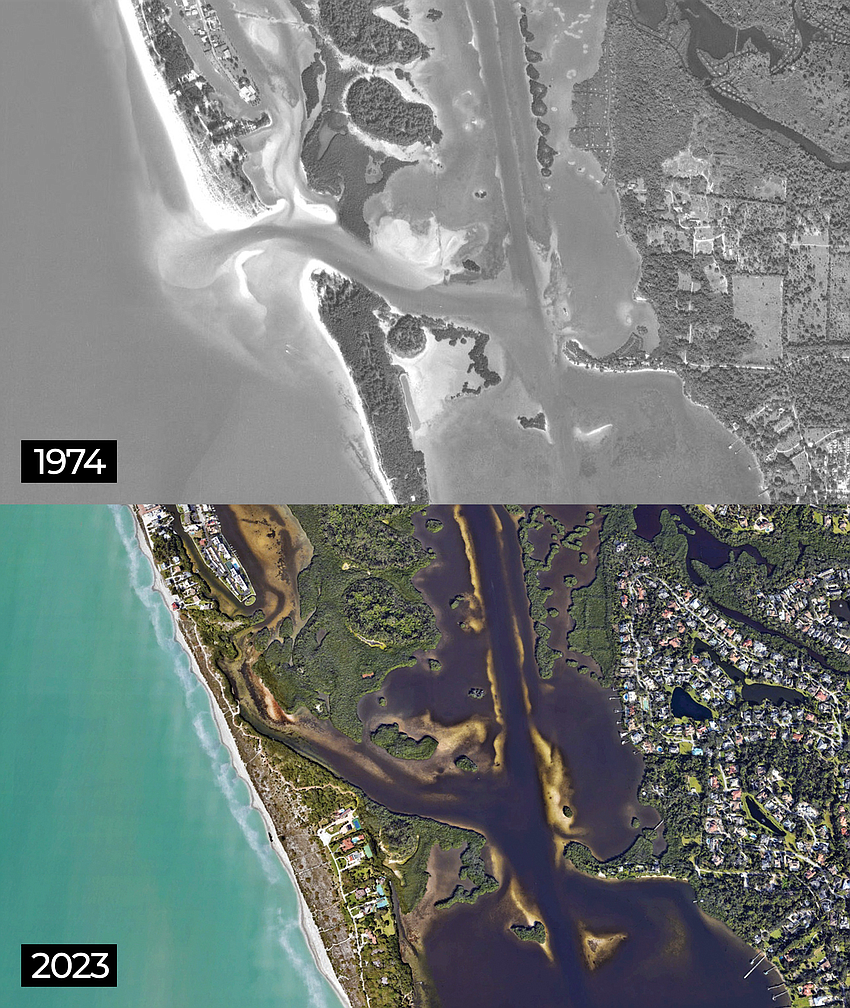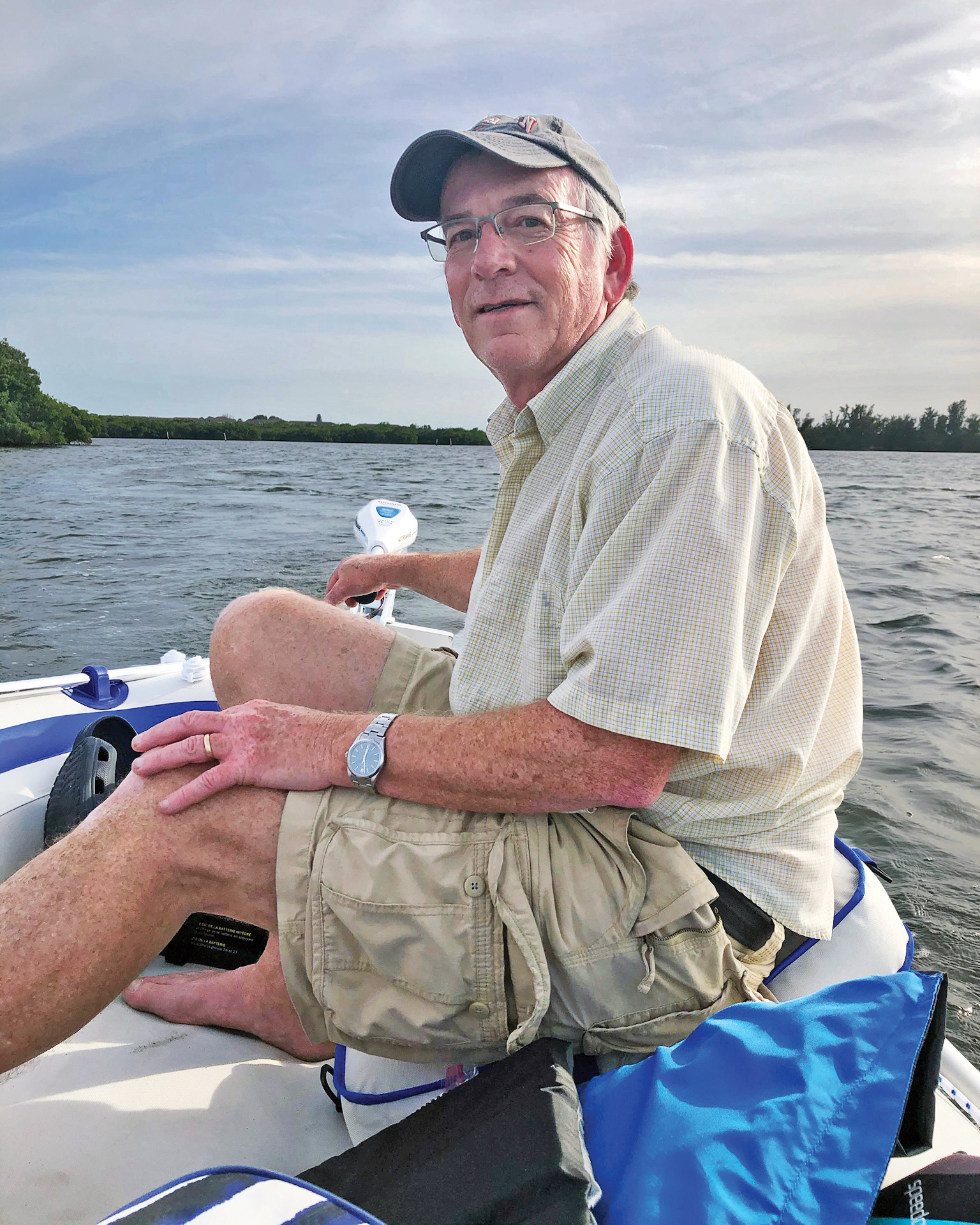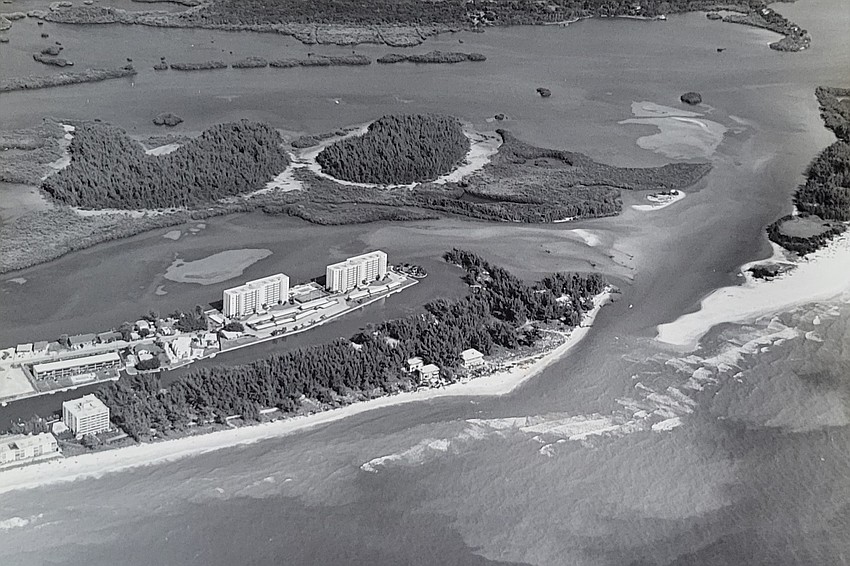- July 18, 2024
-
-
Loading

Loading

From boaters to beachgoers, swimmers to sunbathers, most people of a certain age in and around Sarasota and Siesta Key have a story about Midnight Pass — a tiny waterway or “saltwater doorway” that separates Casey Key from Siesta Key.
Midnight Pass was open for more than a century, and then, in the 1980s, it was closed — on purpose, not by nature — in a move that sealed off Little Sarasota Bay from the Gulf of Mexico. That closure, basically at the hands of a bulldozer, two Siesta Key homeowners and the U.S. Army Corps of Engineers, set off an on-again, off-again battle among dozens of Key residents, public officials and concerned citizens wrapped around one core question: Should Midnight Pass be reopened?
While that query has caused considerable consternation and controversy, stories about the Pass — and what to do with it — range wide and deep.
For entrepreneur and Evie’s restaurant owner Mike Evanoff, who owns Spanish Point Tiki Bar on Little Sarasota Bay, it’s a smell, not really a story. He’s referring to a foul, sewage-like smell wafting into the air over the outdoor tables that disrupts Spanish Point Tiki Bar customers ordering fried shrimp baskets and New England lobster rolls. Over the past year, Evanoff estimates customers have called the Sarasota County Health Department at least 10 times, logging complaints and believing the smell is an internal plumbing issue.
“They have to shut me down for an hour and a half to figure out that it’s nothing to do with the pipes,” says Evanoff. He believes, instead, that it’s Midnight Pass causing the odor because water and fish can’t flow freely from Little Sarasota Bay to the Gulf. “It’s a really bad smell. It’s disgusting.”
For Sarasota County Commissioner Joe Neunder, meanwhile, the story is a memory. Of bumper stickers in his grandparents’ house in Venice. Back in the 1990s, during one of the various times a movement to open the pass heated up, Neunder says he “vividly remembers all the bumper stickers that said, ‘let it flow.’”
A chiropractor, Neunder was elected to the Sarasota County Commission in 2022, after two years on the Venice City Council. He says support for opening Midnight Pass was something he heard often while campaigning, and he has since “made it my mission” to get the pass reopened, behind, he says, a reasoned, consensus-building, scientific approach and a “measure twice, cut once” philosophy.
“This is a water quality project,” he says. “There's a huge appetite in the community for this.”
Neunder is talking about people he’s spoken with while campaigning and in office. A leading organization with an appetite to reopen the pass is the Midnight Pass Society II, a nonprofit officially launched in 2021 with a Facebook group under the name Restore Midnight Pass going back a decade. The group, which Evanoff is part of, lists a large group of financial supporters on its website that includes longtime Sarasota residents and business owners. It even has a link to a merch page that sells everything from Midnight Pass hoodies and captain’s caps to boat flags and mugs.

Midnight Pass Society II is unambiguous about its goal: to restore the water quality of Little Sarasota Bay by opening up the waterflow “in and out of the bay to the sea.” In doing so, the group says on its website, it hopes to correct or reverse a litany of issues closing the pass brought, such as lower water quality; the demise of the oyster population; a loss of nearly 70% of seagrass beds; and a total decimation of the local fishing industry “due to the loss of easy access to/from the Gulf. Closing the pass has harmed this industry and has made sport fishing and recreational boating far less desirable.”
Support to reopen Midnight Pass, however, isn’t unanimous.
One group in particular, ManaSota-88, a Nokomis-based environmental preservation group founded in 1968, opposes reopening the pass for a multitude of reasons. Those reasons, says ManaSota-88 Chairman Glenn Compton, include high and uncertain costs, unintended consequences and unclear biological benefits.
“There’s a lot of ways to address the water quality issues in the bay. (Opening Midnight Pass) isn’t one of them,” says Compton. “If you dig a big hole in the sand, you will cause a lot of damage because it hasn’t been open for 40 years.”
Compton wrote three letters to the Sarasota County Commission in 2023 opposing reopening the pass, saying in one letter it could be an $86 million, taxpayer-funded endeavor. “Dredging Midnight Pass would not be an environmental restoration project,” Compton writes. “It would be an environmental destruction project.”
Like many others on both sides of the pass debate, Compton has a personal history and memory of the pass — and the arguments for and against opening it up again. “It seems like every 20 years or so it comes back,” he says. “I don’t think it will go away anytime soon.”
There are some parts of the Midnight Pass most sides agree on, namely the history. The past of the pass, according to multiple organizations and documents, includes:
While the history is mostly agreed upon, potential consequences of future actions at the pass are murkier.

Supporters of opening Midnight Pass take a “build it and they will come” approach. Only in this case, they substitute dredge for build. But in the view of ManaSota-88, opening Midnight Pass, while on the surface looking like a good idea, is more like trying to squeeze the toothpaste back into the tube, given the environmental damage already done.
Compton says the first public meeting he attended on any issue in the region was a Midnight Pass meeting in 1983, so he understands both perspectives. Yet opening the pass, he says, won’t accomplish what groups like Restore Midnight Pass believe it will. Compton says that’s not just him saying that but an alphabet soup of regulatory agencies, including the U.S. Environmental Protection Agency, the National Marine Fisheries Services, Army Corps of Engineers and the Florida Fish & Wildlife Conservation Commission.
“Based on the review of the numerous regulatory agencies involved, there is no doubt that dredging open Midnight Pass would be environmentally destructive and fiscally irresponsible,” Compton wrote in one of the letters ManaSota-88 sent to the commissioners.
Tomasko, in his presentation to commissioners and an interview, says he believes there are four options for Midnight Pass. Those options are:

Tomasko also laid out the pros and cons of reopening Midnight Pass. Improved water quality is an obvious pro — though the exact Estuary Program wording is opening it “might improve based on other areas that have restored historic tidal connections.” A less obvious con, the organization states, is opening the pass and fostering a direct connection to the Gulf of Mexico might lead to more “red tide events” because a closed pass can block it better.
Any changes to the pass begin with the Sarasota County Commission, which would have to vote to approve it and fund it, and also get it approved and permitted by several agencies. To that end, commissioners, last October, unanimously approved the initiation of a feasibility study for reopening Midnight Pass.
Tomasko, in interviews and presentations, stresses he’s providing research, not making recommendations. He says one thing that could help is a lower temperature within the debate.
“People on both sides exaggerate the consequences of this,” he says, to score points and sway others.
Tomasko is also hopeful a consensus is within reach. “Can we find something everyone can agree on?” he asks. “I think it’s possible.”